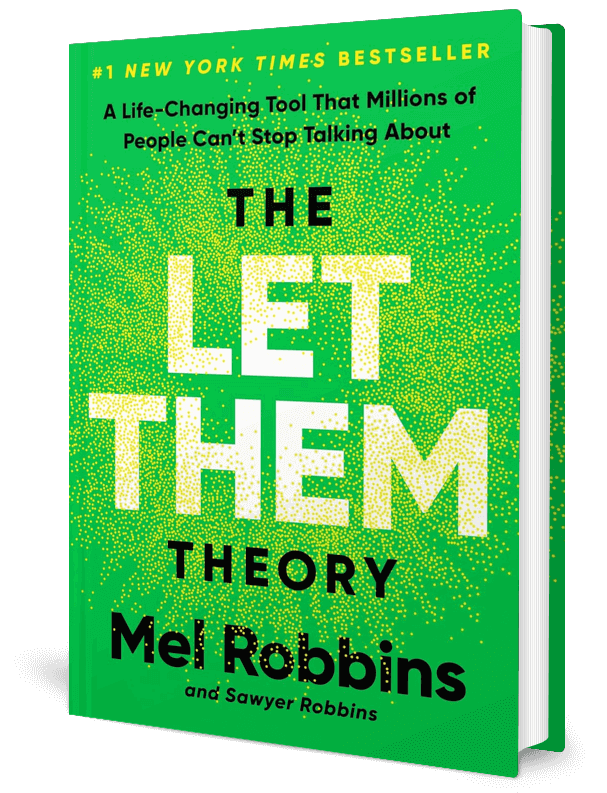Let Them Rush Your Timeline: Take Back Control of Your Publishing Schedule
Sound Familiar?
You're at Sunday dinner with your family, feeling pretty good about the progress you've made on your novel this week. The revision is coming along nicely, and you finally solved that plot hole that's been nagging you for months.
When Uncle Bob asks about your book, you're happy to share that you're working on making your manuscript the best it can be.
"Are you STILL working on that book?" he interrupts, his tone somewhere between bewildered and impatient. "My buddy Frank wrote his memoir in three months and it's already on Amazon making him money. What's taking you so long?"
Before you can respond, Cousin Sarah jumps in: "Didn't you start that two years ago? My favorite romance author writes a novel every eight weeks and she's got like thirty books out now. Maybe you're overthinking it?"
Suddenly, the pride you felt about your careful revision process evaporates.
Maybe you ARE too slow. Maybe good writers work faster? Maybe all this time you've spent developing characters and crafting scenes is just procrastination dressed up as perfectionism. Maybe you should just finish the damn thing and get it out there.
But what if their impatience with your creative process says more about their understanding of quality work than it does about your writing speed?
What if the pressure to rush your timeline is actually pressure to compromise the very thing that makes books worth reading?
This is where the Let Them Theory becomes essential for protecting your creative process.
Just as we've explored with self-publishing judgment and hybrid approach criticism, the pressure to conform to others' timelines often comes from their discomfort with processes they don't understand.
Timeline Pressure From All Directions
The pressure to work faster comes from everywhere, creating a perfect storm of anxiety that can destroy both creativity and quality.
Understanding where this pressure originates helps you recognize that it's not actually about your work—it's about other people's relationship with time, productivity, and the creative process.
Industry pressure creates the foundation of timeline anxiety.
You're told you need to publish every six months to stay relevant, to feed the algorithm, to keep readers engaged.
Book marketing advice often prioritizes quantity over quality, suggesting that frequent releases automatically translate to bigger audiences. Traditional publishing expects genre fiction authors to deliver two books per year, while indie publishing gurus suggest even faster timelines to "build your catalog" quickly.
Reader pressure intensifies the timeline anxiety. Before you've even processed feedback on your current book, readers are asking when the next one will be ready.
Goodreads comments demand faster releases. Series readers expect annual installments, and Amazon reviews sometimes ding authors for "taking too long between books."
Social media followers comment on your work-in-progress posts asking "What's taking so long?" as if creative work operates on their entertainment schedule.
Family and friend pressure might be the most frustrating because it comes from people who love you but fundamentally misunderstand your process.
They think writing a book should take three to six months, max. They've heard that Stephen King wrote Carrie in a weekend (he didn't—this is one of many writing myths that persist).
They compare your process to other writers they've heard about and assume that if you're not publishing quickly, it’s because you're procrastinating or not working hard enough.
Financial pressure can be the most compelling force pushing you to rush your timeline. When writing is your income source, every month without a new release feels like lost revenue.
Credit card bills and mortgage payments don't care about your creative process, and the false belief that publishing faster means earning faster can drive you to rush books to market before they're ready.
The compound effect of all these pressures creates a timeline urgency that has nothing to do with what your book actually needs and everything to do with managing other people's expectations and your own financial anxiety.
Let Them Have Unrealistic Expectations
Here's where the Let Them Theory becomes your creative lifeline: You stop trying to conform your artistic process to other people's anxious timelines.
Let them think books should be produced like widgets on an assembly line.
Let them not understand the difference between drafting a story and crafting a finished book.
Let them believe that fast writing automatically equals good writing, and that creativity should operate on business schedules rather than artistic ones.
Let them live in the social media fantasy land where everyone is cranking out perfect novels in 30 days.
Let them believe the highlight reels they see online without understanding that most "fast" writers have been developing their craft for years before achieving any speed.
Let them not value the time it takes to craft memorable characters, intricate plots, and prose that resonates with readers long after they've finished the book.
Let them miss the entire point of what makes art valuable.
Let them not understand that some stories need time to percolate and develop, that breakthrough ideas often come during the "slow" periods they're so impatient with.
Let them value efficiency over excellence and rush their own creative work (if they have any).
Most importantly, let them remain ignorant of the creative process while you protect yours. Their timeline anxiety is not your creative emergency; it’s theirs.
Let Me Honor My Creative Process
While you're letting others be impatient with processes they don't understand, you get to make choices that serve your work and your long-term career success.
Let me take the time needed to write the best book possible, not the fastest book possible.
Let me allow stories to develop at their natural pace, following the rhythm of discovery and development that creates truly engaging work.
Let me revise until the book serves the reader beautifully, not just meets an arbitrary deadline.
Let me work around my real-life circumstances: my day job, family responsibilities, health needs, and the other realities that affect creative output.
Let me acknowledge that I have seasons of high productivity and seasons that require rest or focus elsewhere.
Let me take time to research deeply, experiment with new techniques, and develop skills that will serve my entire career.
Let me work with editors and beta readers who help improve my craft, even when that process takes longer than expected.
Let me build quality relationships with readers who value depth over frequency.
Let me create work that stands the test of time rather than just fills a publication schedule.
Let me be human rather than a content-producing machine.
The Evidence Supports Patient Craftsmanship.
Harper Lee spent two and a half years revising To Kill a Mockingbird.
Donna Tartt spent eleven years on The Goldfinch and eight years on The Secret History.
George R.R. Martin takes three to six years per Game of Thrones book.
Patrick Rothfuss spent fourteen years perfecting The Name of the Wind.
These aren't examples of slow writers—they're examples of writers who understood that quality work takes quality time, and that patient craft often leads to breakthrough success rather than modest success.
Readers remember and recommend books that were crafted carefully, and careful crafting often leads to more sustainable careers than rushed publishing.
Practical Timeline Boundaries in Real Life
Protecting your creative timeline requires both mindset shifts and practical tools for handling the inevitable pressure from others.
When family and friends question your pace, try: "I'm focused on writing the best book I can, which takes the time it takes." This acknowledges their concern without accepting their timeline anxiety as valid input for your creative process.
When readers ask about your next release, consider: "I'd rather you wait longer for a book you'll love than rush something that disappoints you." This reframes the delay as quality control rather than slowness.
When industry pressure suggests you should work faster, remember: "I'm building a career for the long term, not just the next quarter." This positions your approach as strategic rather than inefficient.
When you catch yourself spiraling about timelines, remind yourself: "Quality work takes quality time. I'm investing in excellence, not speed."
Setting realistic expectations requires learning to communicate progress without committing to specific deadlines.
Building buffer time into any public timeline commitments protects both your creative process and your professional relationships.
Protecting your creative schedule means creating writing routines that account for life, not just word counts. Build in time for revision, editing, and unexpected challenges.
Resist the urge to promise faster timelines just to please others, and practice saying "I don't know yet" when people ask about completion dates.
Deciding when to share progress versus when to work privately can dramatically reduce timeline pressure.
There's real benefit to working quietly until you have something solid rather than providing regular updates that invite timeline speculation.
Choose your update frequency based on your needs, not others' curiosity, and remember that "I'll share when I have something worth sharing" is a complete answer.
Your Creative Timeline Doesn't Need External Approval
The most liberating realization for authors struggling with timeline pressure is this: Your creative process doesn't need to make sense to anyone else.
The people pressuring you to work faster aren't going to buy more books if you publish them quickly, and they're not going to abandon you if you take the time your work requires.
Other people's impatience is not your creative emergency.
When you stop trying to manage everyone else's timeline expectations, you can focus on what actually matters: creating work that serves your readers and builds your reputation for excellence.
Timeline pressure often masks deeper questions about worth and legitimacy.
There's an unspoken belief that "real" writers work faster, that taking time means you're not serious or professional enough.
But protecting your creative process is actually the most professional thing you can do—it's protecting the quality that will sustain your career long after the people rushing you have moved on to rushing someone else.
Your job is to write books that matter, not to produce content on other people's schedules.
Let them be impatient with your timeline while you create work that stands the test of time.
Next time, we'll explore another external pressure that affects authors regardless of their timeline: "Let Them Expect You to Follow Trends"—because even when you're working at your own pace, people will have strong opinions about what you should be writing.
This post is part of the Let Them Theory for Authors series. Explore the complete series for more insights on building creative confidence and professional boundaries.














